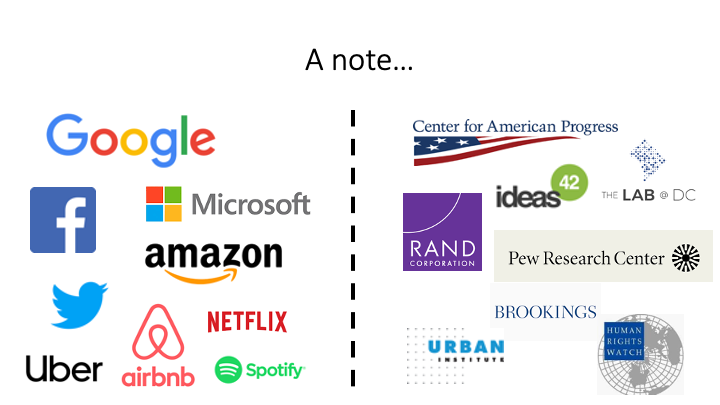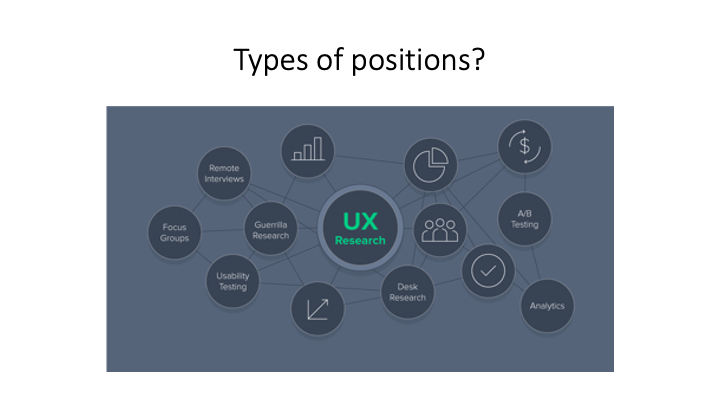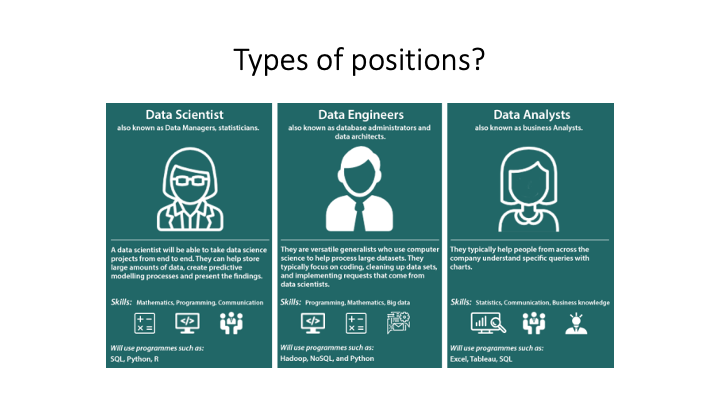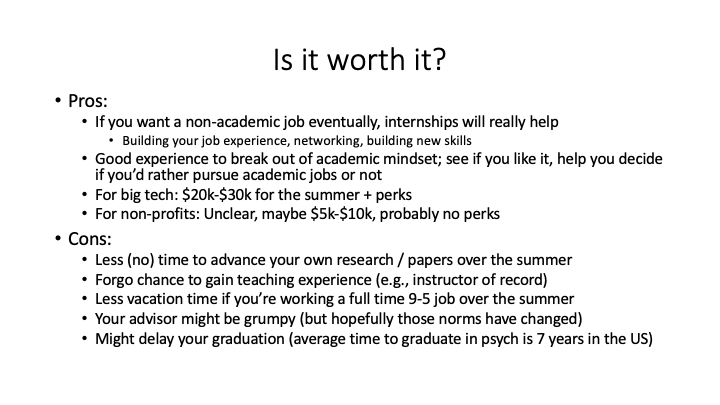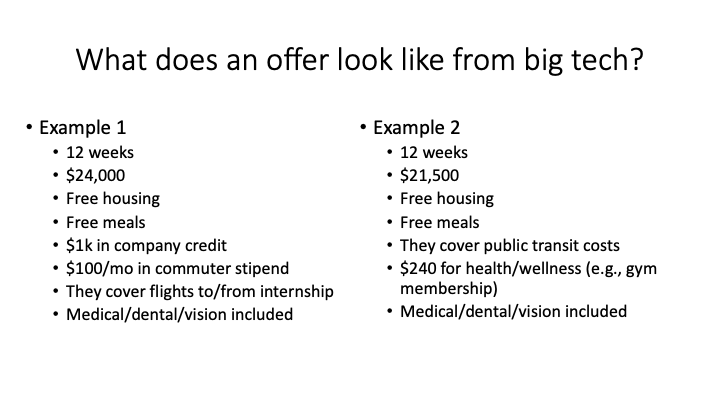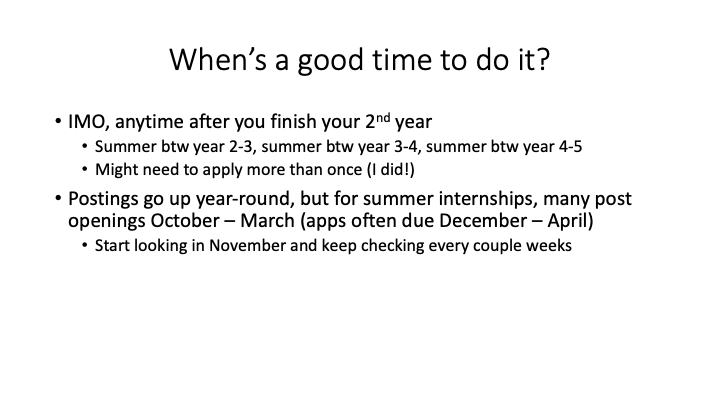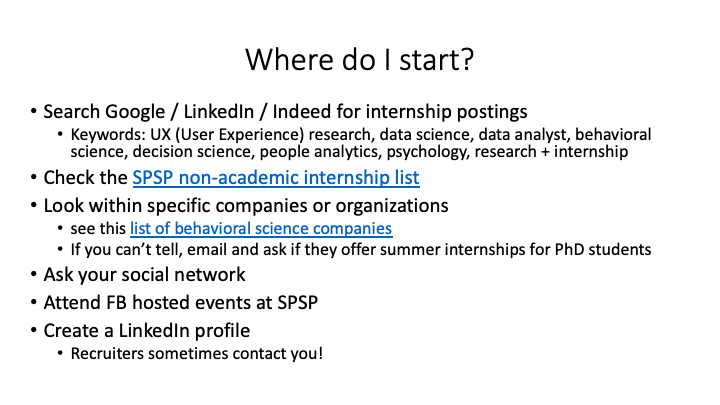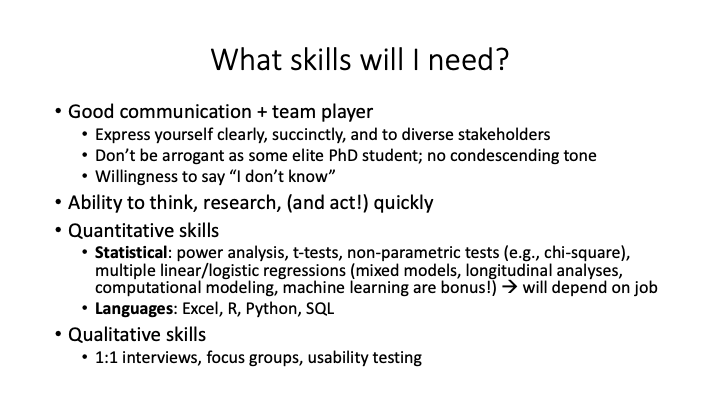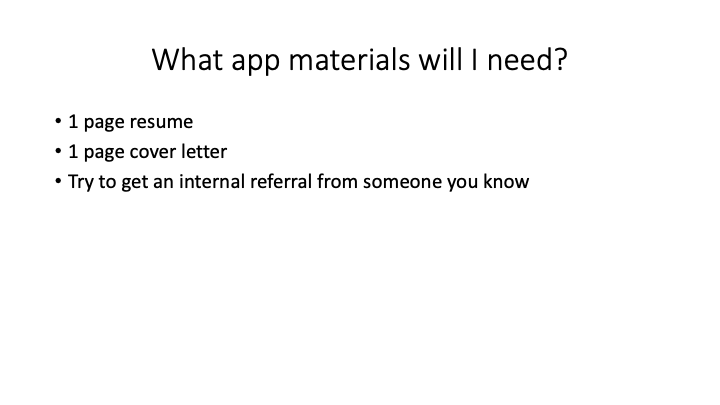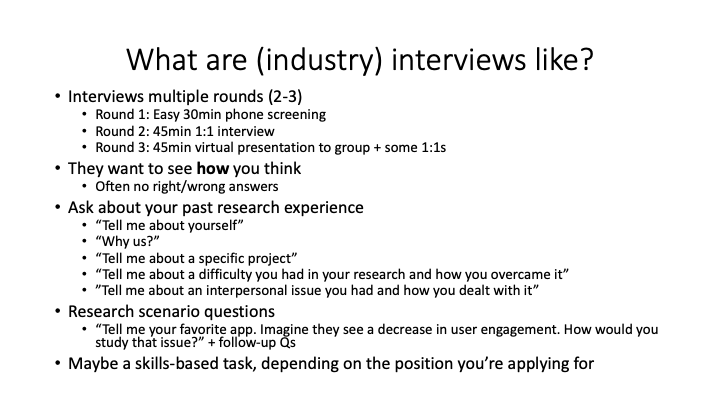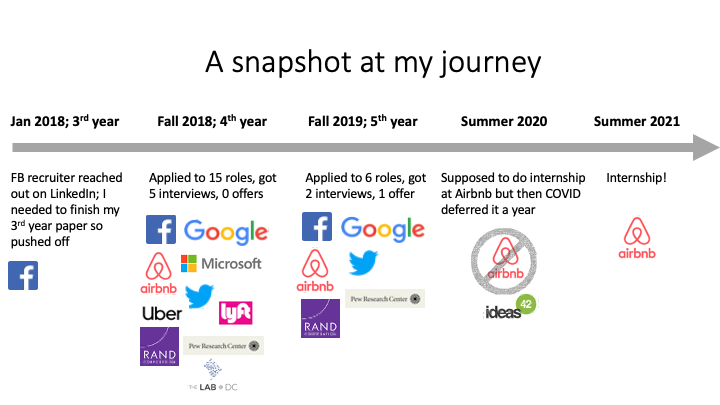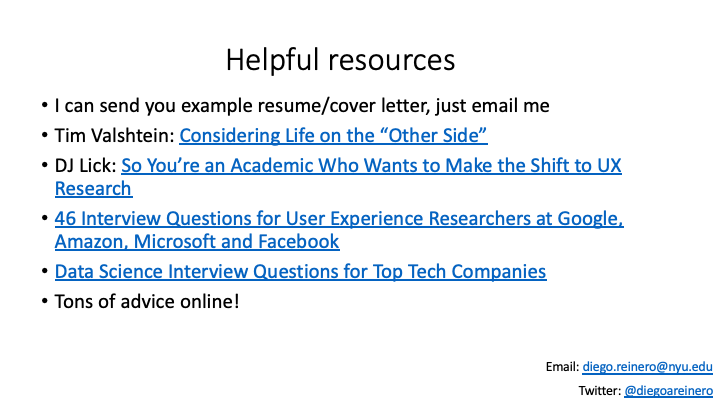I gave an informal talk in @TessaWestNYU lab about the process of applying for summer internships as a (psych) grad student. It's application season, so I'm sharing my slides here https://bit.ly/3rr9Ih1 if others find it useful, & summarize my two cents in the thread below!
Note: Big tech / social media companies like Google, Facebook, etc, have resources set up to host PhD-level summer interns. Think tanks / non-profits may not always have that capacity, but are definitely worth checking out! (the companies/orgs listed here are just a sample)
Typically (social) psych PhD students are qualified for roles such as UX researcher, data scientist, or data analyst. My sense is that being a data scientist at a big tech/social media company requires a lot more computational/programming experience
Like everything, there are pros & cons to taking a summer away from your academic research/teaching to do an internship. I think it can be worthwhile though, to help you decide whether or not non-academic jobs appeal to you (and if not, you've learned something valuable too!)
Summer internship offers from big tech/social media type companies are also very cushy (especially since you can make about as much $ in 3mo as you normally do in 12mo as a PhD student)
I think a good time to start considering it is anytime after your 2nd or 3rd year. You might need to apply more than once, so having a couple summers is a safe bet! I'd suggest starting to look for postings in November (apps are up for lots of places now!)
I think we often get so fixated on the quant side, we forget the importance of good communication. Ofc, quant skills are highly valued, but I'd bet for many roles, they care more about how you handle interpersonal conflict vs. if you used LOOVC or WAIC in your Bayes model.
The good news is most places just require a 1pg resume and 1pg cover letter. But it's not always easy to write so succinctly! And if you can, internal referrals will help get your resume at least looked at.
If you land an interview (woo!) be ready for multiple rounds and to think through hypothetical research scenarios quickly. Be ready to both defend your reasoning but admit your limitations. I found this part the most challenging and it took me a few tries to get the hang of it.
Here's a snapshot of my experience applying for summer internships. Someone asked me whether doing a summer internship would detract from being considered a "serious academic" on the future academic job market. My response was ...
... I'm not on search committees so I don't know, but I think norms are changing and believe that doing a summer internship can be a good learning experience even if continuing on the academic track. That's my plan at least!
Finally, there is tons of other great advice online! I personally learned a lot just from talking to folks like @julianwills1, DJ Lick, @PaulLitvak, @AllisonRMcGrath @SylviaMorelli and people at FB events at @SPSPnews. Here are a couple helpful resources! Happy to chat!

 Read on Twitter
Read on Twitter